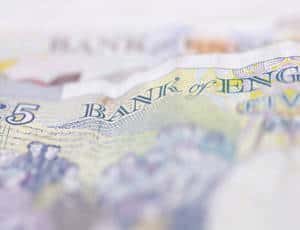The Bank of England’s Monetary Policy Committee voted yesterday to keep the bank rate at 0.5% and the size of the Asset Purchase Programme at £375 billion ($571 billion, €431 billion). The bank rate is the rate at which a central bank lends money to its domestic banks.
Signs have emerged that the UK’s economy is starting to recover.
The Markit/CIPS purchasing managers’ index (PMI), published today, rose to 52.5 in July, recording the fastest expansion since May 2011.
The Asset Purchase *Programme, the Bank of England’s bond-buying program, is stimulus cash that the Bank is pumping into the British economy.
* Spelling: UK – Programme. USA – Program.
The minutes of the meeting will be available online on Wednesday, August 14th.
The Committee said its latest output and inflation projections – the Inflation Report – will be released at 10.30 on Wednesday, August 7th.
In a press release, the Bank of England added “As previously announced, the Committee will also respond to the Chancellor’s request for its assessment of the use of thresholds and forward guidance at that time.”
This was the second policy meeting with new bank Governor, Mark Carney.
There is concern among members of the Monetary Policy Committee that any sign of a sustained recovery will trigger expectations of a rise in the Bank rate next year.
Expectations of higher bank rates could result in lenders and investors asking for higher interest rates, which in turn would lead to more conservative consumer and business spending.
The British economy, like the American one, depends on consumer spending for much of its economic growth.
Committee members had already said in their previous meeting that the Bank of England’s main objective is to make sure the economic recovery continues, i.e. that the stimulus cash is not withdrawn prematurely.
The Bank of England could tighten policy if unemployment falls
Unlike other parts of the European Union, unemployment in the United Kingdom has not risen steeply since the 2008 financial crisis. Economists are not sure why.
Possibly, companies have decided to hold onto their staff so that they are prepared when demand and revenue picks up again. If this is the case, the UK’s current unemployment rate of 7.7% might not fall much when the recovery gathers pace, meaning less pressure on wage inflation.
In an interview with the Wall Street Journal, Simon Hayes, an economist at Barclays Bank said “If unemployment stays high as activity picks up there is likely to be no need for a policy response as inflationary pressures will remain muted.”
However, if unemployment does fall rapidly when economic growth picks up, benchmark interest rates will also rise.

